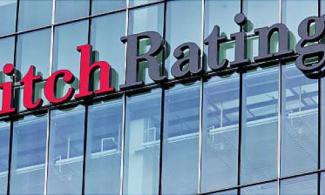
Net long refers to a condition in which an investor has more long positions than short positions in a given asset, market, portfolio, or trading strategy.
International credit rating agency, Fitch has said that the banning of commercial banks from owning net long foreign currency positions by the Central Bank of Nigeria (CBN) will depreciate the country’s currency, the Naira more.
This was revealed in the most recent Fitch Ratings commentary on Nigerian banks, which was released last Thursday. It explained that the CBN should have allowed banks to maintain control of their net long FC positions because the practice has previously helped to combat Naira depreciation and that prohibiting the practice would not solve the current forex problem, but would exacerbate it.
Net long refers to a condition in which an investor has more long positions than short positions in a given asset, market, portfolio, or trading strategy.
In a statement released by CBN in January, the apex bank mandated all commercial banks in the country to let go of the net long practice while dealing with forex and set February 1 as a deadline. However, since then, the situation has become worse as the Naira is currently trading at N1,600 to $1 at the parallel market
Fitch's comment reads in part: “The Central Bank of Nigeria (CBN) has published new circulars and made a number of statements accompanying the recent devaluation.
“One circular issued after the devaluation on 31 January, aimed at increasing the supply of FC, prohibited banks from having net long FC positions, and set 1 February as the deadline for compliance.
“Net long FC positions have mitigated the impact of past devaluations, including the recent devaluation, on capital ratios as they result in foreign-exchange revaluation gains that cushion the impact of inflated FC-denominated risk-weighted assets (RWAs).
“Without net long FC positions, banks' capital positions are now more exposed to Fitch's expectation of a further moderate depreciation of the naira, but total capital adequacy ratios (CAR), in most cases, will remain above regulatory minimum requirements.”
The comment added that the proposed foreign currency gateway bank announced by the Central Bank of Nigeria could have a detrimental impact on Nigerian banks' liquidity.
It continued: “The Governor of the CBN, Yemi Cardoso, also announced plans to establish a FC gateway bank with the intention of centralising correspondent banking activities, while asserting that a recent audit has determined USD2.4 billion of overdue FX forwards invalid. Fitch believes these measures by the CBN may negatively affect the banking sector's FC liquidity.
“The downgrade of ENG's Long-Term IDR follows the downgrade of the bank's VR to 'ccc+' from 'b-', which has been removed from RWN, and reflects Fitch's estimate that the bank has breached its regulatory minimum CAR requirement of 10%. It also reflects our view that, notwithstanding likely material forbearance in respect of single-obligor credit concentration, the bank's internal capital generation is likely to be insufficient to restore compliance with the regulatory minimum and core capital buffers commensurate with its risk profile in the near term. This is in view of pressure on the naira, increased asset-quality risks given material largely FC-denominated Stage 2 and Stage 3 loans (end-3Q23: a combined 38%of gross loans) and heightened credit concentration risks.”